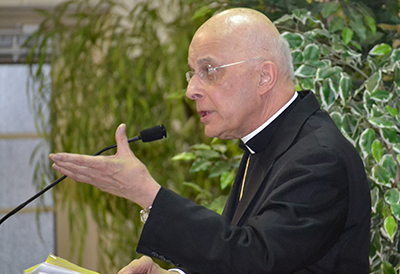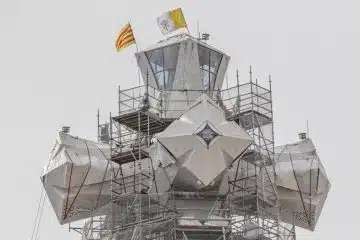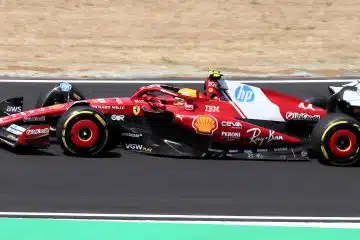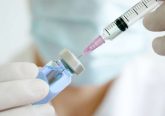Cardinal George joins cancer drug clinical trial

By Catholic News Service
CHICAGO — Chicago Cardinal Francis E. George is participating in a clinical research trial for a new cancer drug, the Archdiocese of Chicago announced Aug. 22.
Cardinal George was first diagnosed with bladder cancer in 2006 and had a recurrence of cancer announced in 2012. The clinical trial at the University of Chicago involves a drug, currently known as MPDL3280A, that is designed to activate cells of the immune system, enabling them to attack cancer cells, the archdiocese said in a statement released to media.
“This approach differs from that of traditional chemotherapy, which uses drugs designed to be toxic to cancer cells,” the statement said. “A preliminary trial of this new drug has shown promising results for patients who have the same type of cancer as Cardinal George.”
The University of Chicago reported that in the first round of the clinical trial, 43 percent of patients with advanced bladder cancer “showed evidence of a ‘durable effect.'” While undergoing the trial, the cardinal will maintain his regular schedule, the archdiocese said.
After his 2006 bladder cancer diagnosis, Cardinal George had surgery at Loyola University Medical Center in Maywood to remove his bladder, his prostate gland and parts of his ureters.
Five years passed without a recurrence of the cancer, but in August 2012, doctors found cancerous cells in one of his kidneys and in a nodule that was removed from his liver.
After the diagnosis, he underwent a series of chemotherapy treatments. Four months after being diagnosed, the cardinal was told that doctors could no longer find any sign of cancer. However, in March of this year, Cardinal George announced in his column in the Catholic New World that the cancer had returned.
“After many tests, scans, biopsies and other inconveniences, the settled judgment is that the best course of action is to enter into a regimen of chemotherapy, with drugs more aggressive than those that were used in the first round of chemo,” he wrote.
Bladder cancer is the ninth most common cancer worldwide. The American Cancer Society estimates that more than 74,000 Americans will be diagnosed with bladder cancer in 2014, and approximately 15,000 new diagnoses are made when bladder cancer is in advanced stages.
The cardinal’s health concerns have stepped up the process of searching for his successor as archbishop of Chicago, reported the Catholic New World, newspaper of the Archdiocese of Chicago. During an April 11 press conference, Cardinal George, who turned 77 in January, told reporters that he recently urged the papal nuncio, Archbishop Carlo Maria Vigano, to begin the process.
“It’s a question of being able to spend your entire energy on what is my responsibility as archbishop of Chicago. This is a position that demands a lot of constant attention,” he said. “Now it looks as if I’m going to have to be spending a little more attention on my health and so it’s just not fair to the archdiocese to have someone who may not be able to do the job as well as I believe it should be done.”
Posted Aug. 25, 2014













